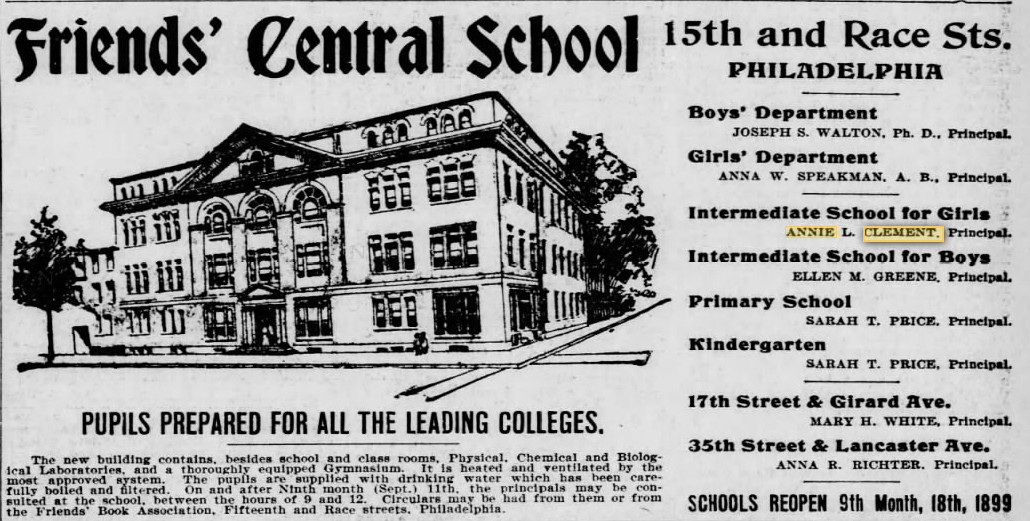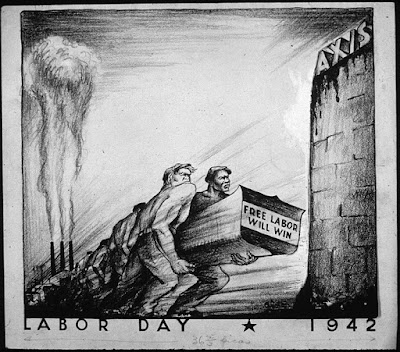today is Friday, day one of the semester.
Welcome!
In honor of our school’s 175th Anniversary, I share this advertisement from 1899. Note we had 3 campuses! And we supplied students with filtered drinking water!

Okay, now let’s get started…
Dear 11th Graders,
Does that sound a little strange? 11th grade? I am very much looking forward to teaching you this year. Believe it or not, this year will pass very quickly and I have a whole lot of things I want you to experience.
Teaching is not just telling and learning isn’t just listening. Your experience, of course, teaches you this. So, I really don’t want to be talking at you all the time. I will at times, have to be the “sage on the stage” and I will have to do most of the speaking. But most of the best learning happens when you are actively engaged in learning. So, what I am telling you is that I need you to be involved. The success of the class will depend just as much on you as it will on me. Because, as I say above, teaching is not telling. There will be many projects, simulations and presentations. We will also take time to examine the present as we look at 400 years of American History. This course examines American history and culture from the colonial times to the late 20th century. You will rely less on textbook work in this course and more on primary sources: letters, charters, legal codes, etc. Our goal is two-fold: first, we hope that you become more knowledgeable about the United States; second, we hope you will become more critical in their thinking and reading so that their ability to analyze and intelligently question what they read, hear and view will improve.
 Required Texts:
Required Texts:
- Most of our reading will be primary sources. Some will be secondary sources. Almost all of them will be in the document packet. (two volumes), The document packet will also be available as a PDF to download into a PDF annotation tool such as Notability or Kami.
- DuBois, The Souls of Black Folk (on Amazon.com, e-version, and in many bookstores)
- Some type of system for taking notes is essential. This might be a notebook or digital.
- We will occasionally use secondary sources and for a textbook, we will occasionally use Digital History and more frequently, The American Yawp. These websites serve as our e-textbooks.
- Here is a link to the document packet.
You are strongly encouraged and occasionally required to write highlights and annotations in all text material.
 Blog:
Blog:
You are expected to contribute almost every week to a blog that can be seen by others in the class. Over the course of the first semester, you should have at least 12 posts which cumulatively reach about 3000-10000 words. (We will talk about the 2nd semester later.) These are not expected to be completely polished pieces of writing, but they should show your engagement with the readings and your peers, and create a ground you can build on in later work and discussion. (The word minimum is not particularly high, a page of single spaced typed work is 500 words.) Avoid generalizations; write something meaningful. Write for the audience of the class and anyone like you who might stumble across the pages. You should read your peers’ blog posts for ideas to react to. (I’ll have blog posts due the last class of every week- you’ll need to write at least 10 of these blog posts. Over the weekend, I will create a blog for every one of you.
You may be asking, “What should I write about?”, Topics should typically include things like:
- reactions to the reading and reactions to class.
- questions you want your peers or me to answer, things you don’t understand.
- address the writer of the document directly. Tell them off, agree with them, ask questions you’d like them to answer.
- Reflections on connections between the readings and issues you’ve encountered in other courses or in your life.
- Responses to questions posed by your classmates.
Once in awhile, I’ll ask you specifically respond to a given prompt. If this is the case, you will have to write a blog post for this week. Most of your posts will be on topics of your choosing.
Here’s my blog. Once we get started, I’ll be making this the landing page in Canvas.
 How I view school:
How I view school:
I treat the subject of history as a portal to teach important competencies like writing, critical thinking, reasoning, and technology skills (you’ll use more tech that you perhaps are used to.) This makes the content more relatable, useful, and engaging. I allow and encourage students to rewrite papers. I don’t penalize missed deadlines severely, though do not make a habit of it (more than twice in a semester) or you will lose the precious privilege of being able to rewrite. The end goal is mastery, and I’m not as concerned about when an individual masters a concept—just that it is in fact mastered.
This class is a space of total experimentation in an atmosphere of mutual respect and trust. This class is a kind of contract between us. As a community of intellectuals, we will read, write, talk and think. We will become readers and participants in each other’s work, coaching and supporting as we learn what real work is together. I will be totally open to your questions and concerns. In a nutshell,
There are three things I basically ask from you:
- To Really Try
- To Participate in Class as best you can.
- Be open minded to me, your classmates, and my class
I look forward to helping you learn.
Mr. McDonnell
One More Item:
click the image below to see the most recent class recordings.








 A young, earnest but headstrong George Washington may have started the French and Indian War says this historian. It’s a long article, but work your way through it.
A young, earnest but headstrong George Washington may have started the French and Indian War says this historian. It’s a long article, but work your way through it.